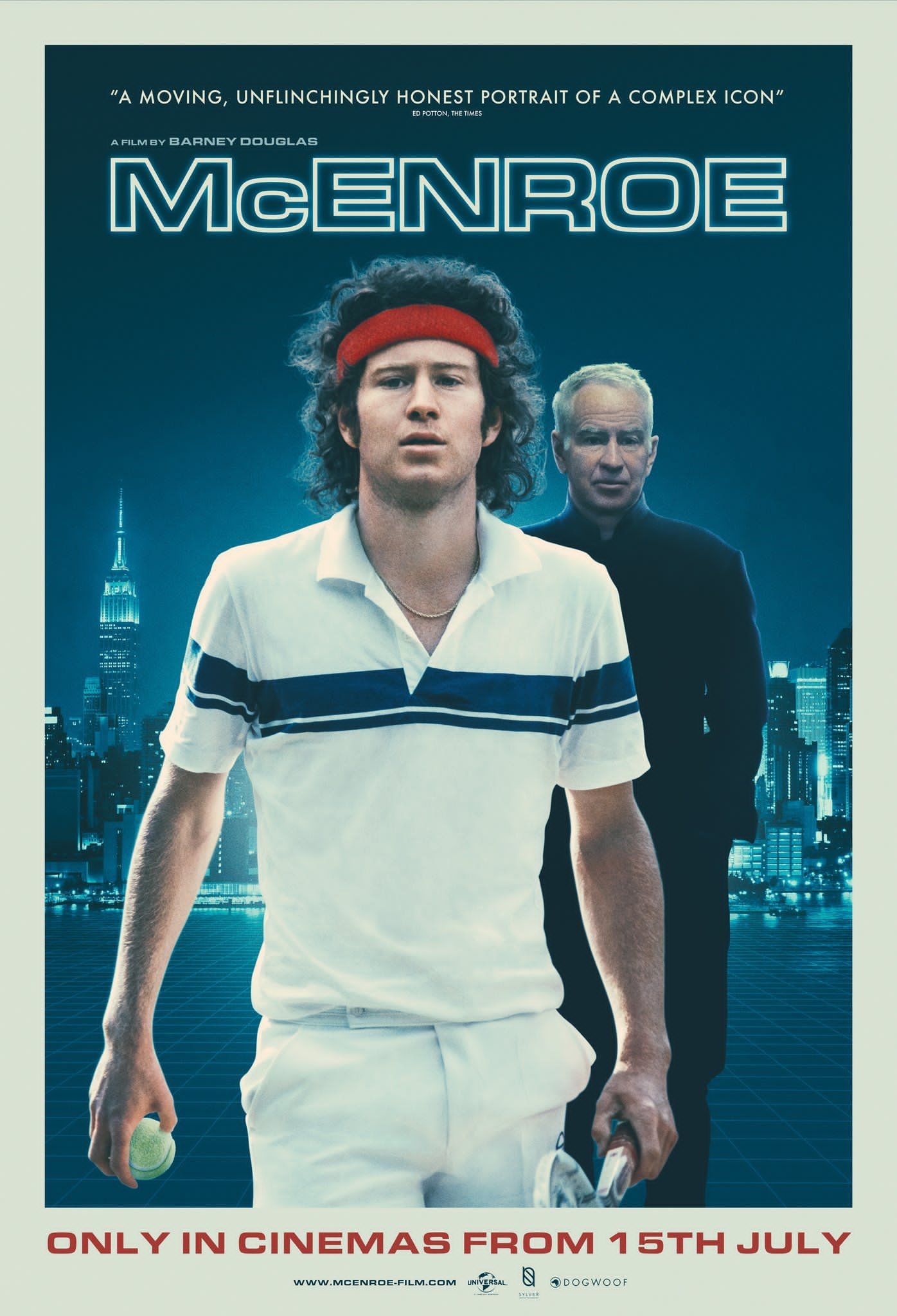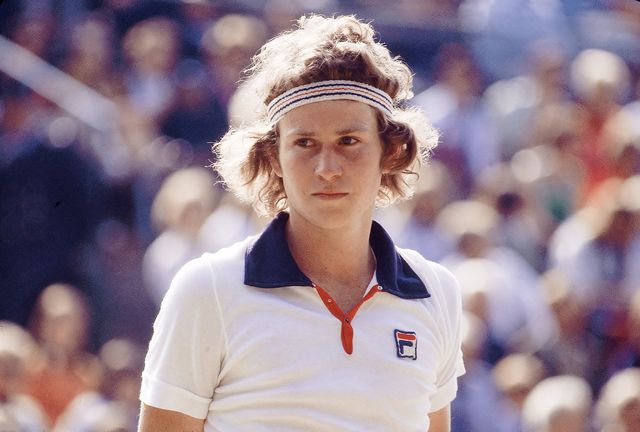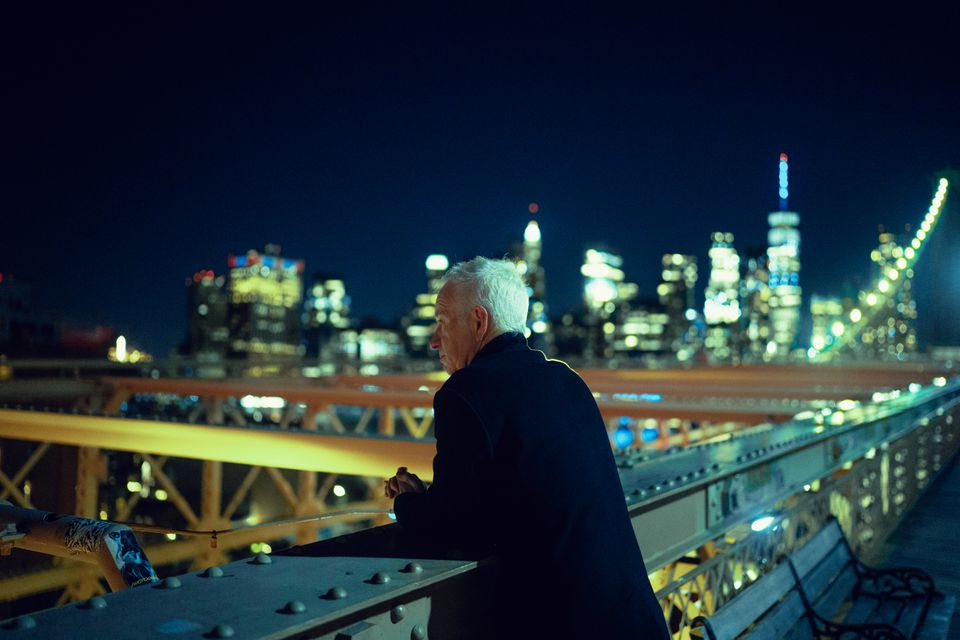

[Rating: Minor Rock Fist Down]
Premiering on Showtime on Sunday, September 4
John McEnroe‘s entire tennis career was marked with explosive outbursts, arguing with referees, and win after win after win. It makes perfect sense that he be the subject of a documentary. His personality is not the easiest to swallow, which makes him a lightning rod for entertainment. Combine that with his incredible track record and you have a fascinating sports superstar.
Although tennis had been around for a very long time, it was when McEnroe was beginning his career that the sport experienced a boom. When tennis’s biggest competitions (U.S. Open, Wimbledon, and the French Open) began being broadcast on network television in the late 1960s and 1970s, people across the country tuned in. It sparked an interest in the sport that had not existed at the same level prior to those broadcasts.
In 1977, at the young age of eighteen, McEnroe was introduced to the world at eighteen years old when he played in the French Open and Wimbledon. He quickly became a notable figure in the world of Tennis due to his success on the court and his unruly temper. In the late 70s and early 80s, he consistently found himself winning the major competitions, while being at odds with the referees and every call that they made. His rivalry with Björn Borg was legendary, as the two were polar opposites. While veins were popping from McEnroe’s head, Borg was ice cold and determined. McEnroe’s career spanned several decades. Throughout the years, his on-court antics were rivaled by his off-court controversies.

Now that we have McEnroe’s career in context, let’s talk about the documentary itself. While the man’s life and career should make for an enthralling story, the movie is kind of lifeless. Its structure is far too familiar, while bringing little new to the table. Which is not always a bad thing. In this case, when you have a larger than life subject being relegated to the usual song-and-dance of the sports documentary, it is disappointing.
The archival footage is interesting and brings some genuine excitement to the movie. Admittedly, I knew little about John McEnroe beyond his temper and his cameos in Adam Sandler movies. So seeing him actually playing tennis did bring a certain awareness of his role in the sport and the world of sports at large that was necessary for me to see him for the athlete that he is, instead of the personality. Where the archival footage entertained, the talking head interviews left more to be desired.
Having the subject themselves as a main source for soundbites in documentaries can be tricky. There is an objectiveness that can be feigned when they are absent. When they are present, however, it may bring a bit more firsthand knowledge to the film. But it also calls into question how much say they had in the final product and portrayal of their story.
Here, most of the interview clips are from McEnroe, himself. Hearing what he has to say about some of his more infamous blow-ups and clashes with the tabloids are certainly worthwhile, but he does not go much deeper than that. It always feels like their is space between him and the audience. He is never quite as vulnerable as you hope for the subject of a documentary to be when looking back on decades of triumphs and mistakes.

The supporting interviews come from McEnroe’s family, mostly, with a few from legends of the game, Billie Jean King and the aforementioned, Björn Borg. None of them are very substantial. We hear about how good he was or how bad his temper was, but it never really dives into the whys or the hows. I found this particularly frustrating when it came to the interviews with his children.
It always felt like we were just skimming the surface of what it was like to live in the same house as McEnroe and to be raised by him. I am not at all suggesting that this is the fault of his children or the film itself, I just wish something could have been done differently to have made these sections of the film more compelling. There was a moment at the end that involved his son apologizing to him. It was a tender, honest moment between father and son. I wish the film had as much depth to it as this scene, in particular had.
Although McEnroe is an interesting subject, the documentary leaves a bit to be desired. It is well put together but it does not have the energy or vulnerability that could bring its themes together in a satisfying way. I appreciate the archival footage that it displayed in teaching me about a man I only kind of knew about. I learned a lot about John McEnroe, but I still feel like there is more to the man that this movie does not attempt to unpack.





Comments on this entry are closed.